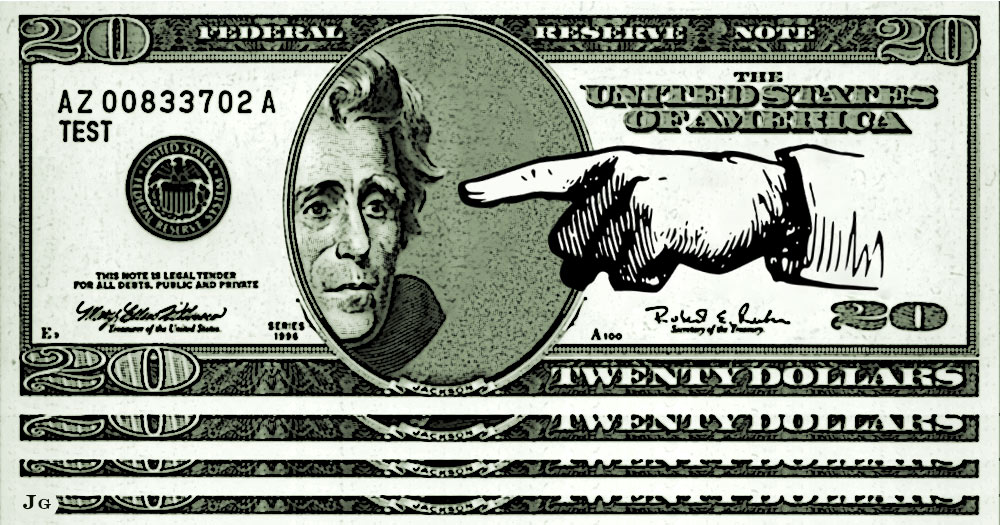By now, most people are probably OK with Treasury’s plan to oust Andrew Jackson off the face of the $20 Federal Reserve Note and replace him with Harriet Tubman.
I certainly am. Ms. Tubman was a great hero of freedom. President Jackson has a more … mixed legacy.
The original plan to rotate Alexander Hamilton off the ten spot met with pushback as a result of his rising popularity from the Broadway play, Hamilton. Besides, Hamilton deserves blame — er, placement on the nation’s official paper money. Hamilton devised the first national banking system. Andrew Jackson, decades after Hamilton’s death, nixed that insider-mercantile scheme by refusing to re-authorize the central bank of the day, setting up a very different system for the Treasury and America’s banks.
Less than a century later, Hamilton’s idea was revived in the form of the Federal Reserve. Which we benefit/suffer from to this very day.
But in a bizarre twist, Jackson was not simply replaced. He was demoted. Tubman is to be placed on the note’s obverse, and Jackson moved to the back of the bus, er, note. The reverse.
I would have preferred to revive Old Hickory years from now, after the Federal Reserve dissolved, to be featured on a private bank’s note. After all, private banks did that for years between Jackson’s time and the modern period.
Bank notes don’t need the imprimatur of government.
That would allow us to place, on the flip side of the sawbuck, a more suitable image — of the Big Dipper, which served escaped slaves as a direction, to go north: “follow the Drinking Gourd.”
Additionally, the Big Dipper suggests bailouts, doesn’t it?
We’ll have plenty more before the system is changed.
This is Common Sense. I’m Paul Jacob.
Common Sense Needs Your Help!
Also, please consider showing your appreciation by dropping something in our tip jar (this link will take you to the Citizens in Charge donation page… and your contribution will go to the support of the Common Sense website). Maintaining this site takes time and money.
Your help in spreading the message of common sense and liberty is very much appreciated!

